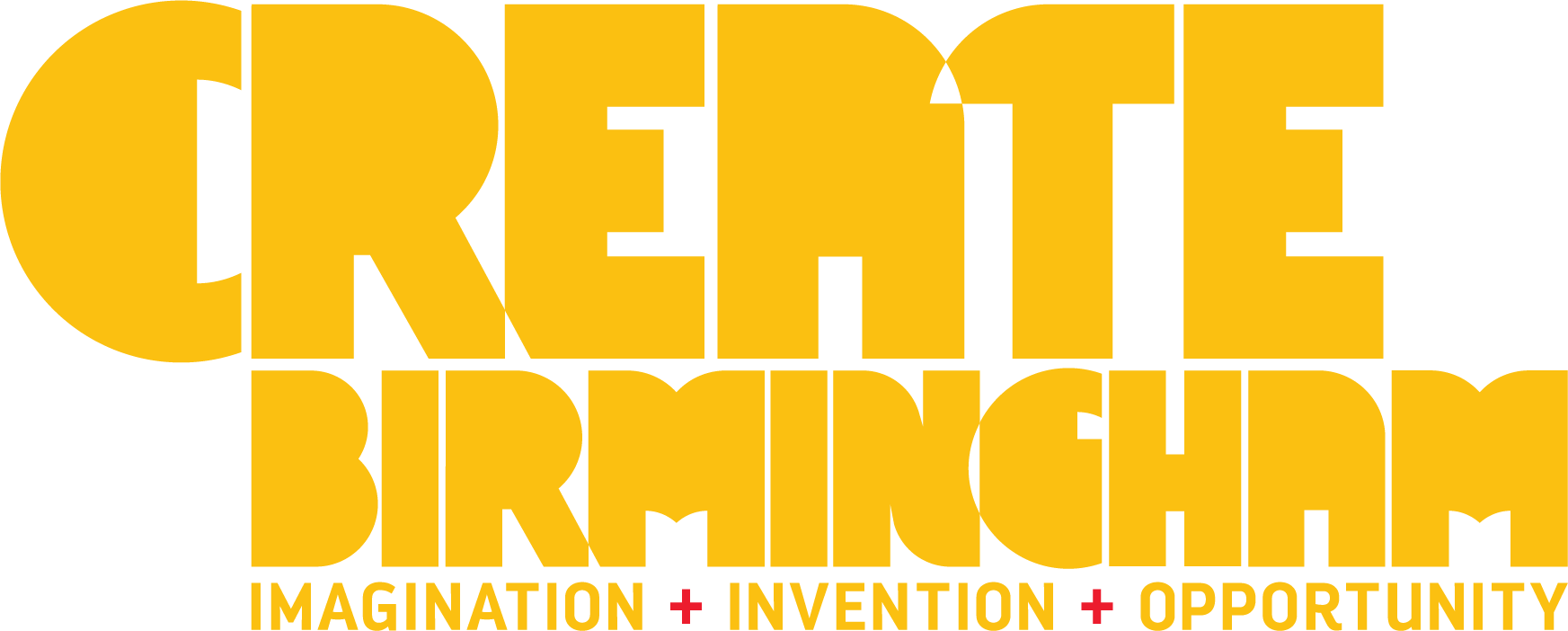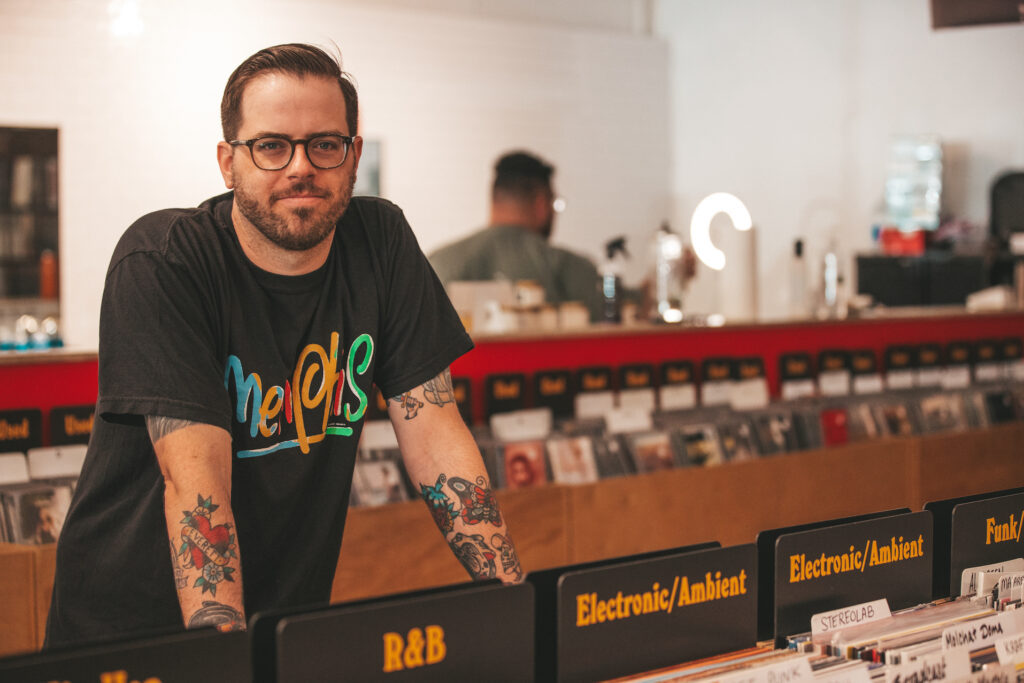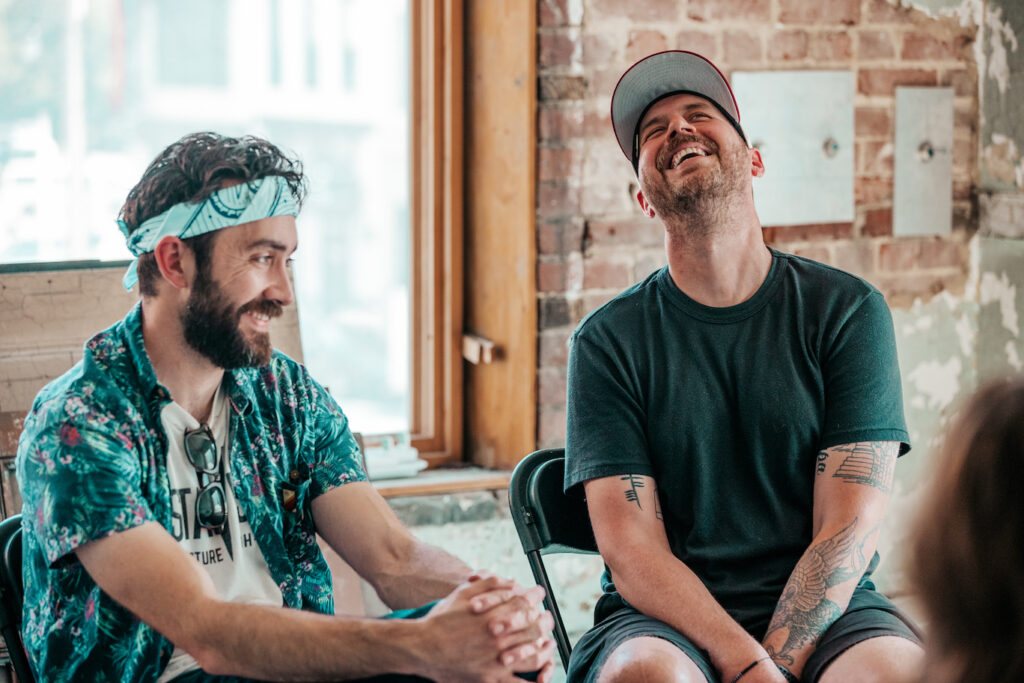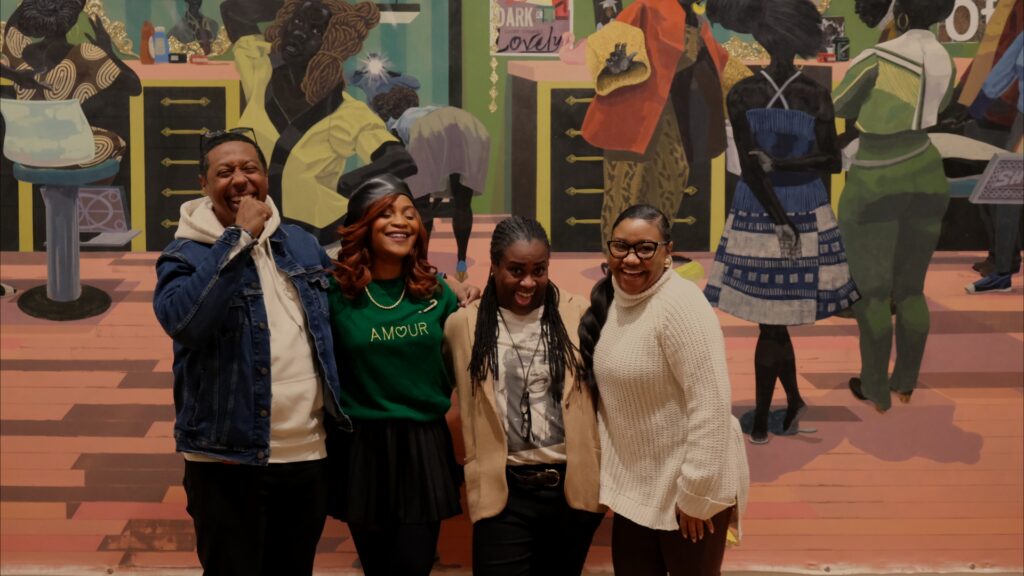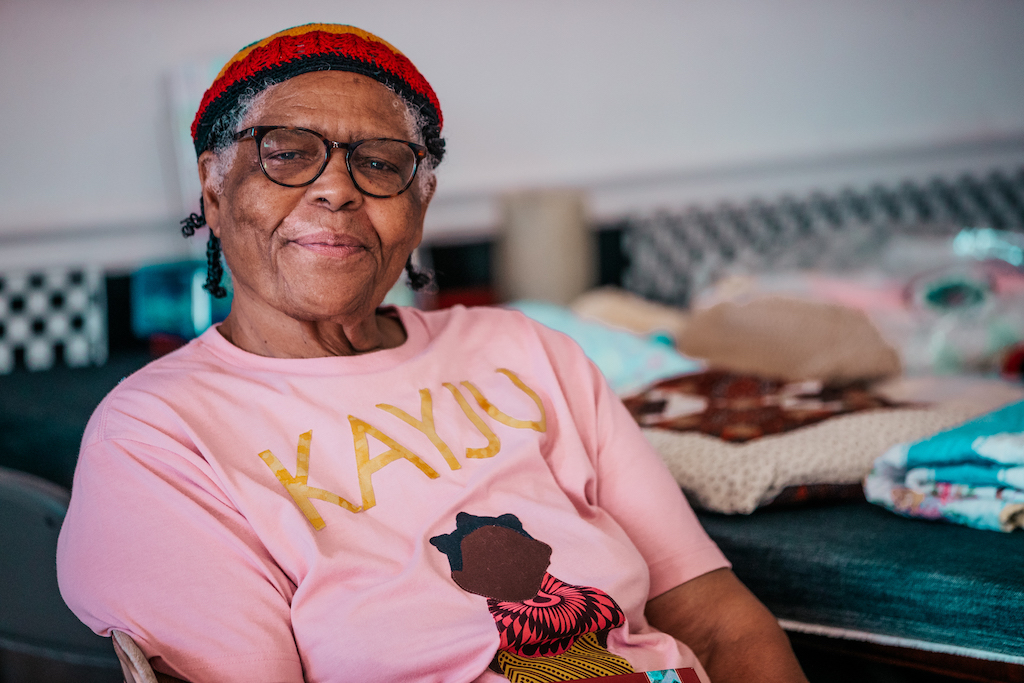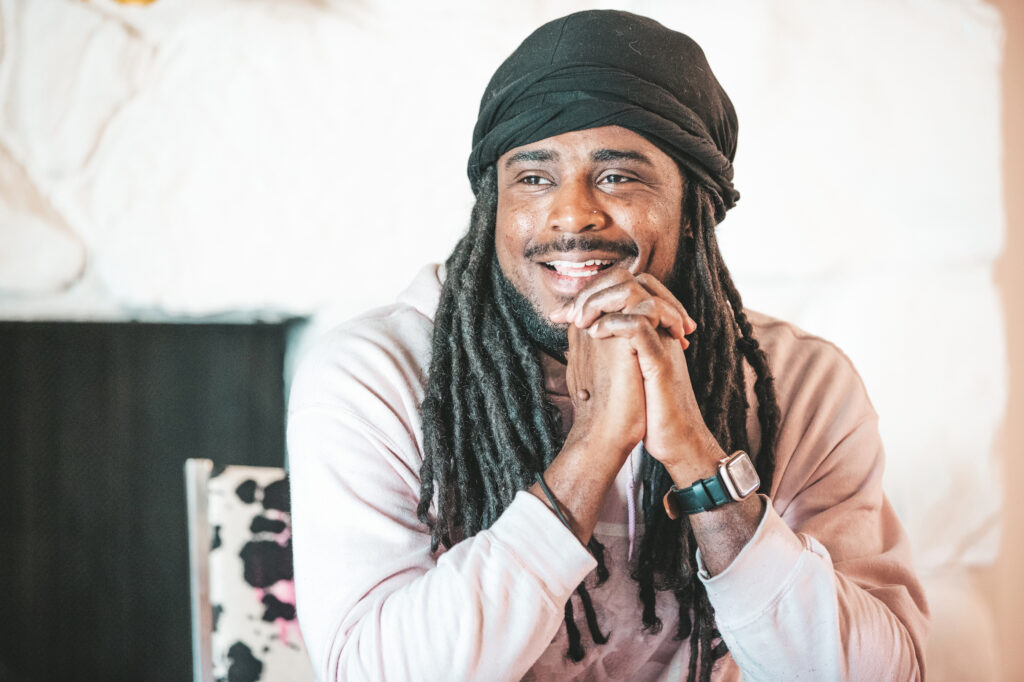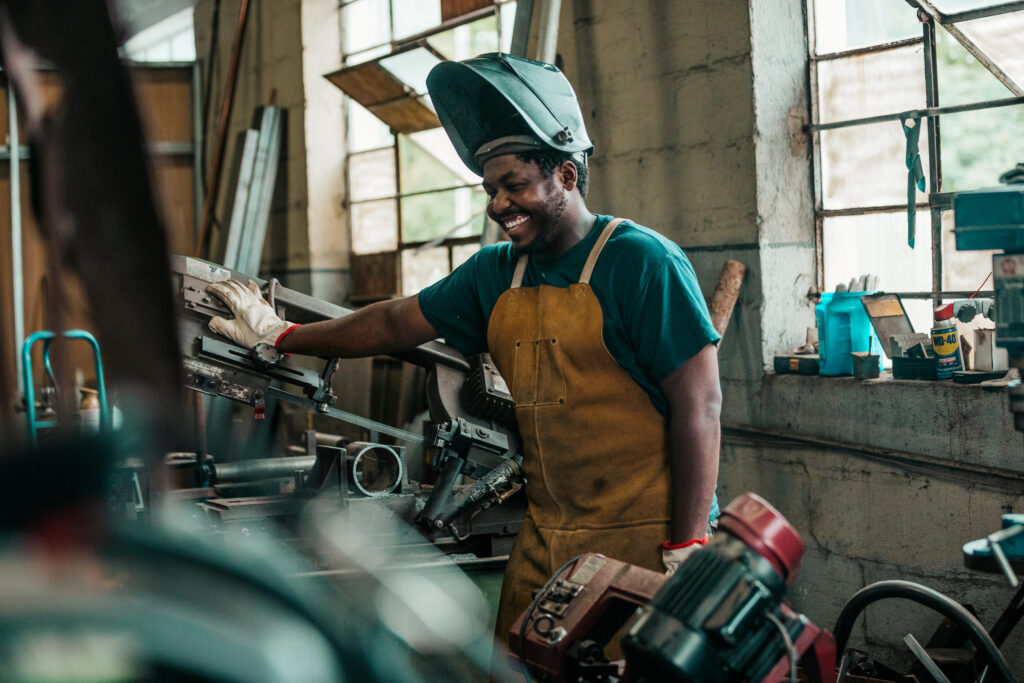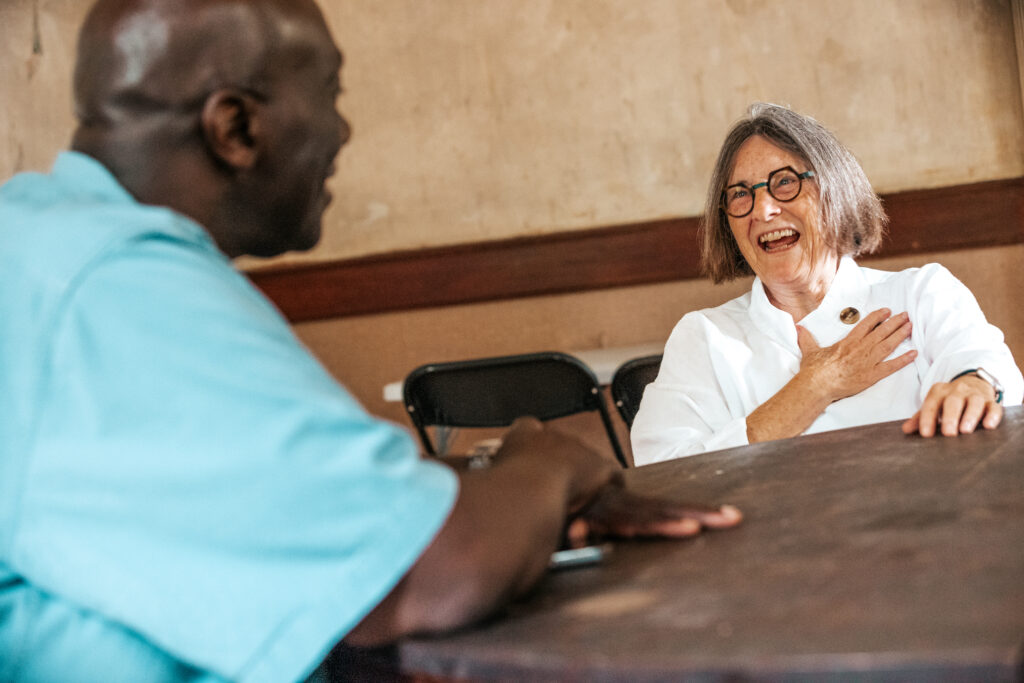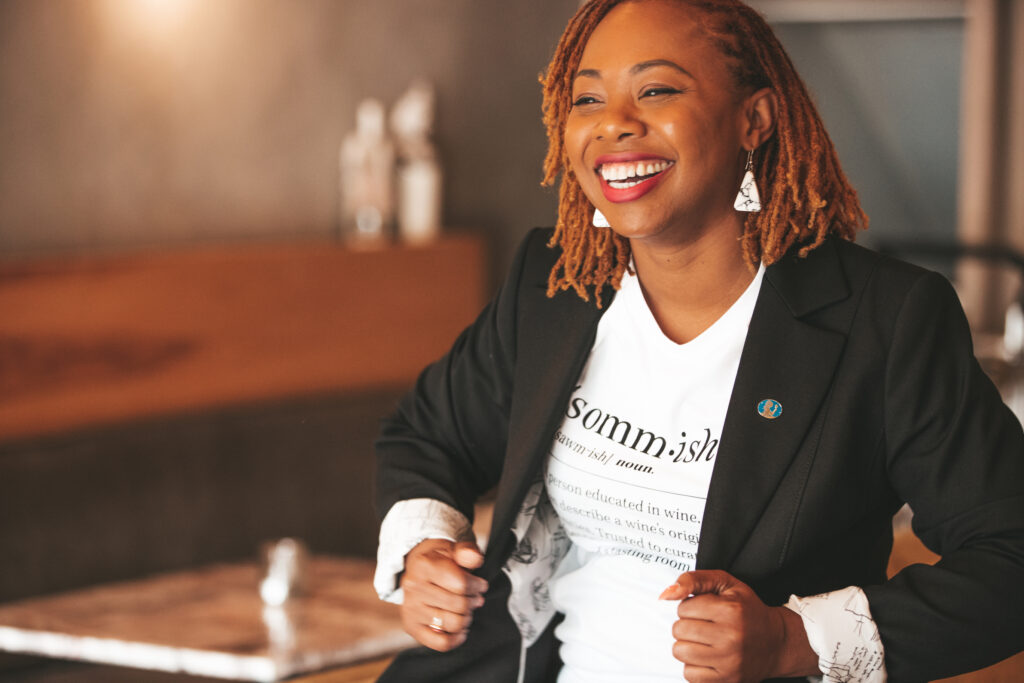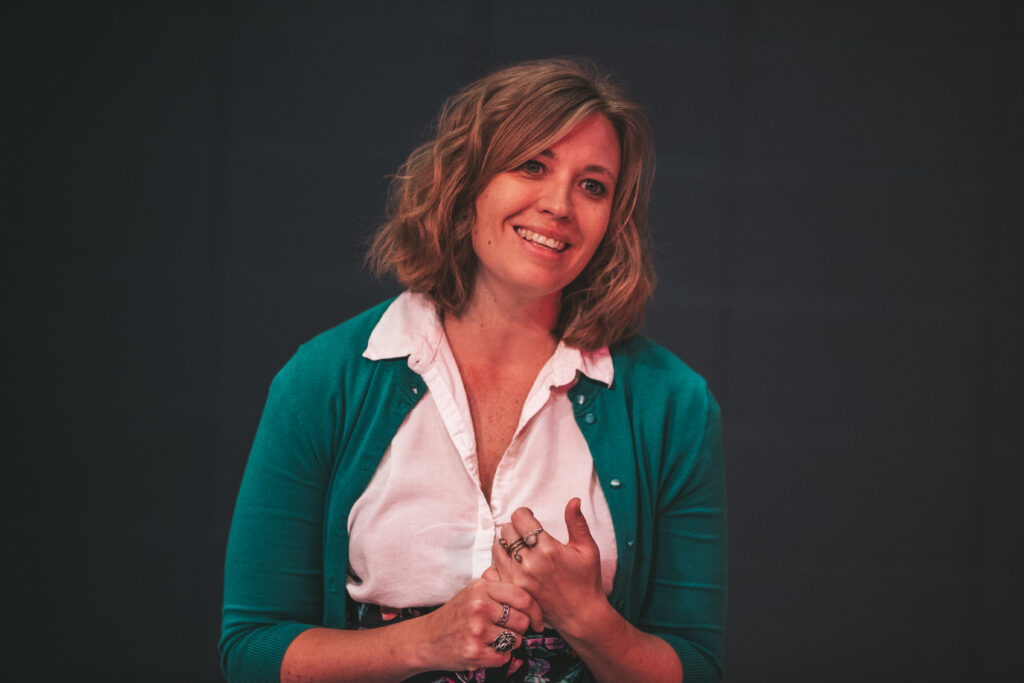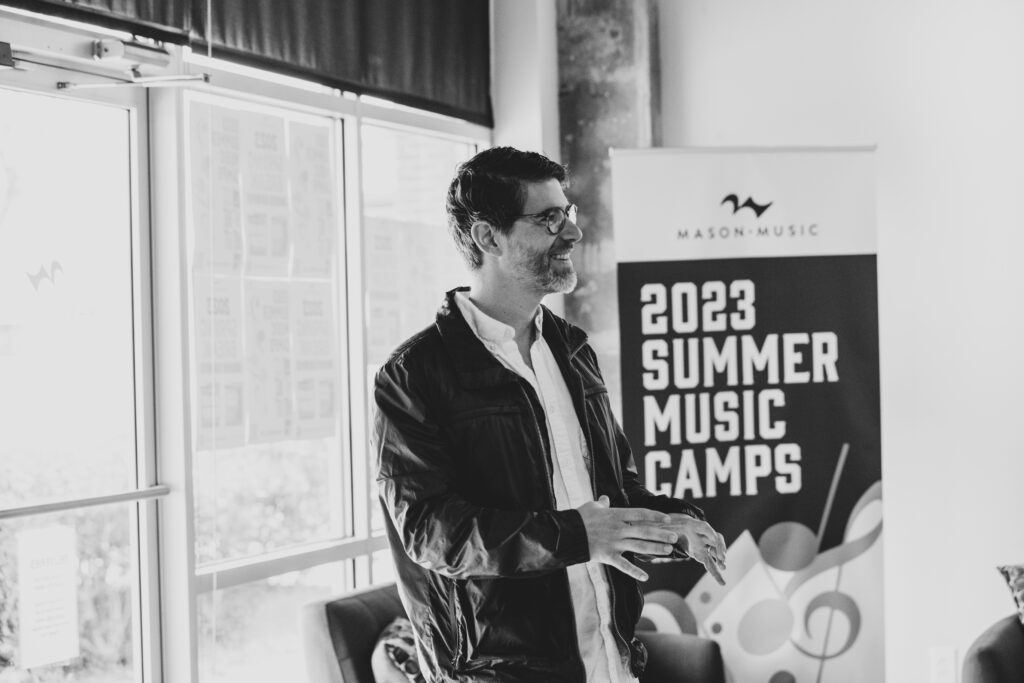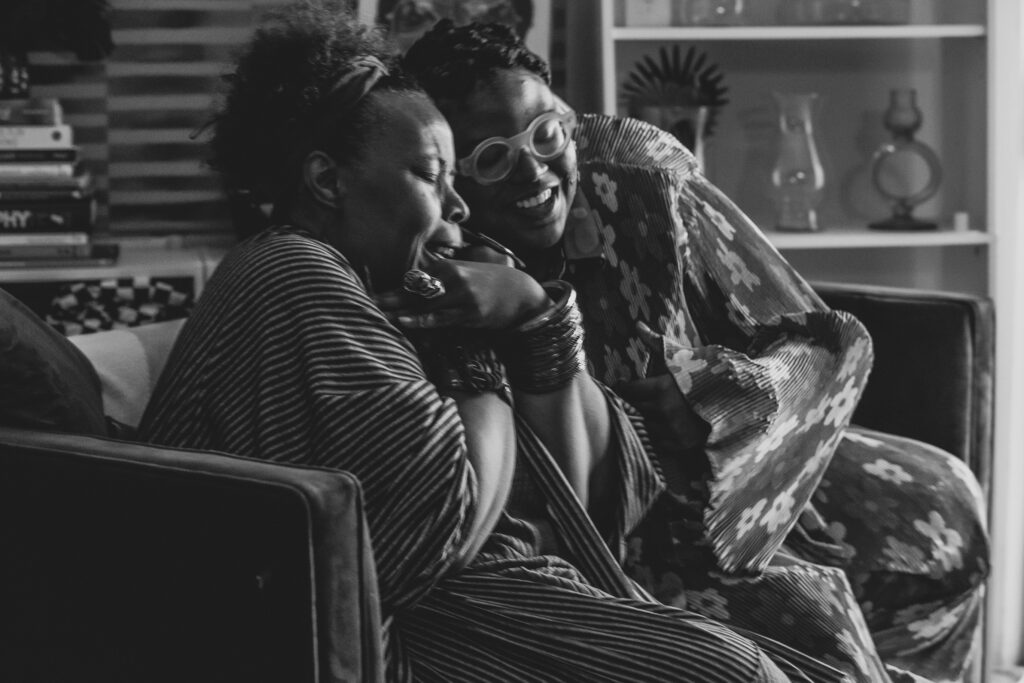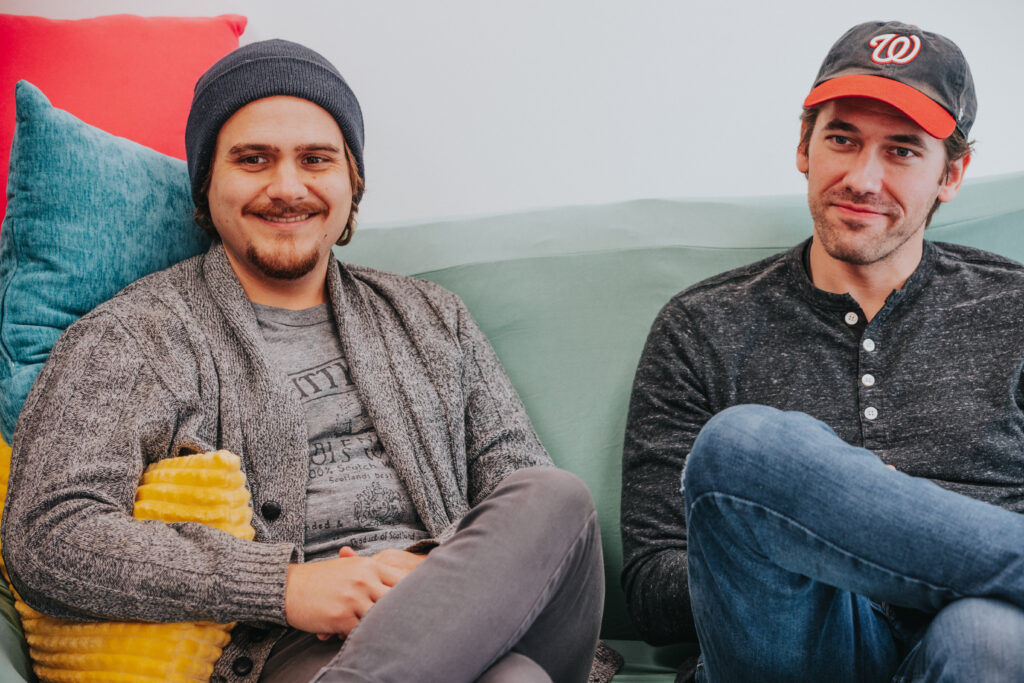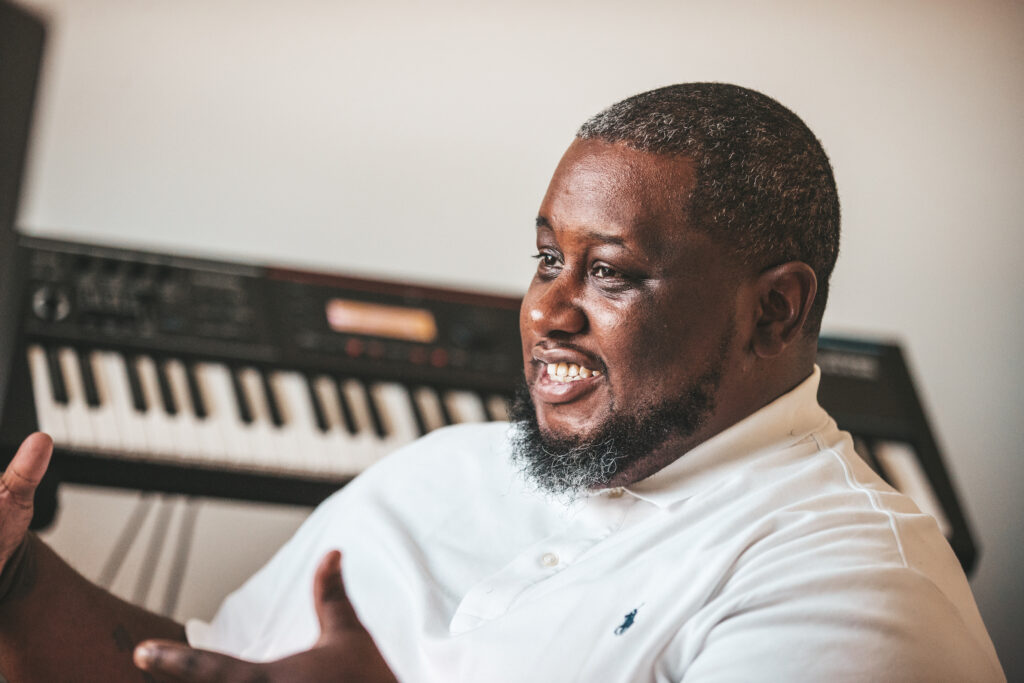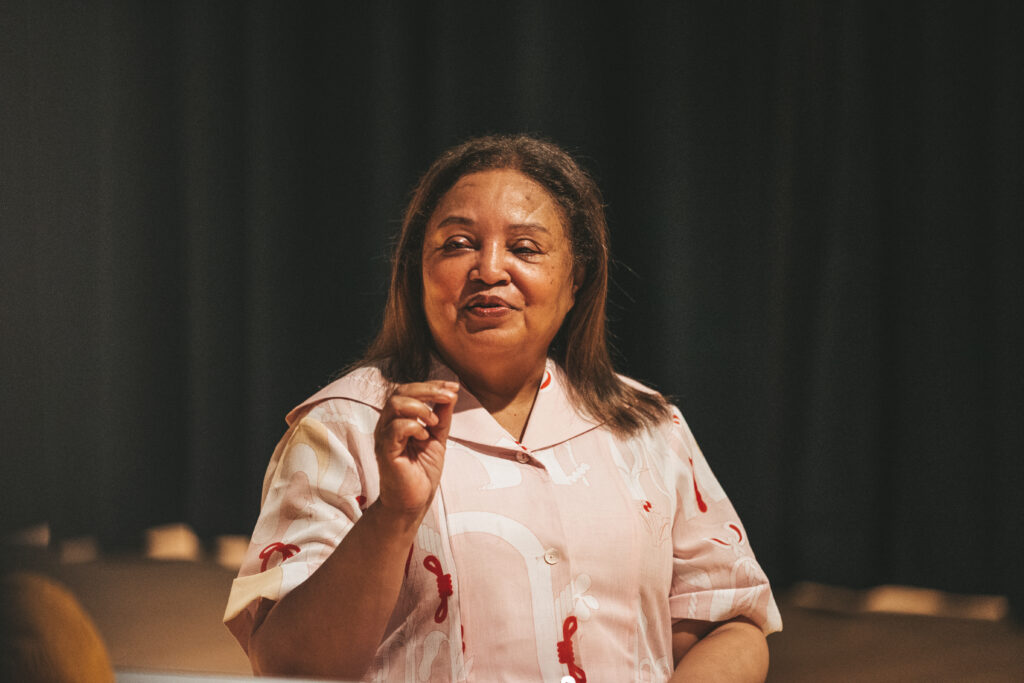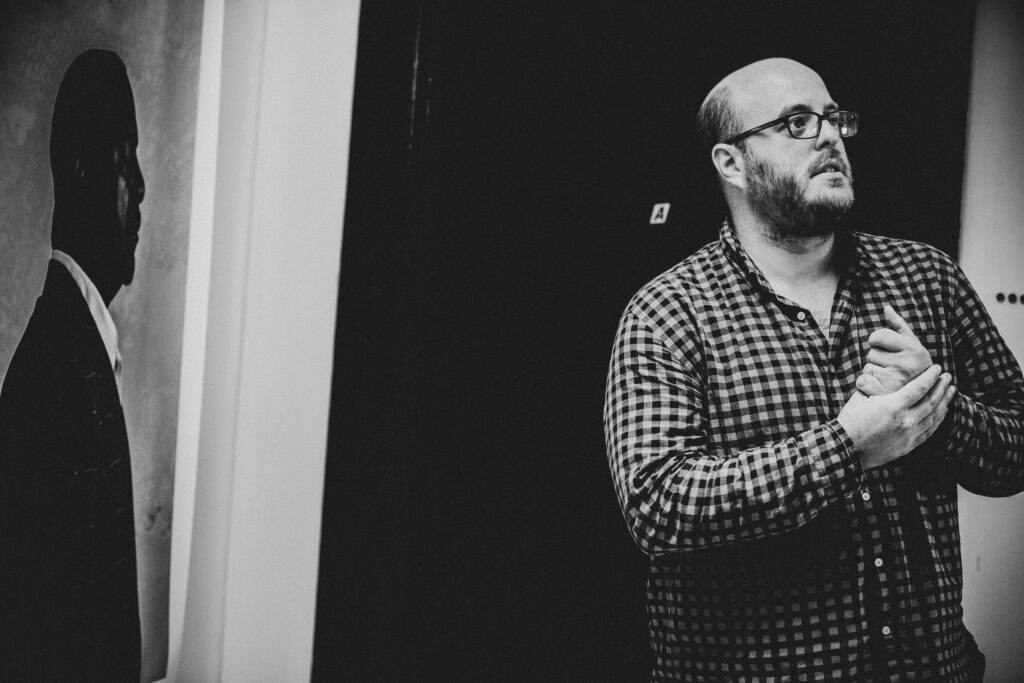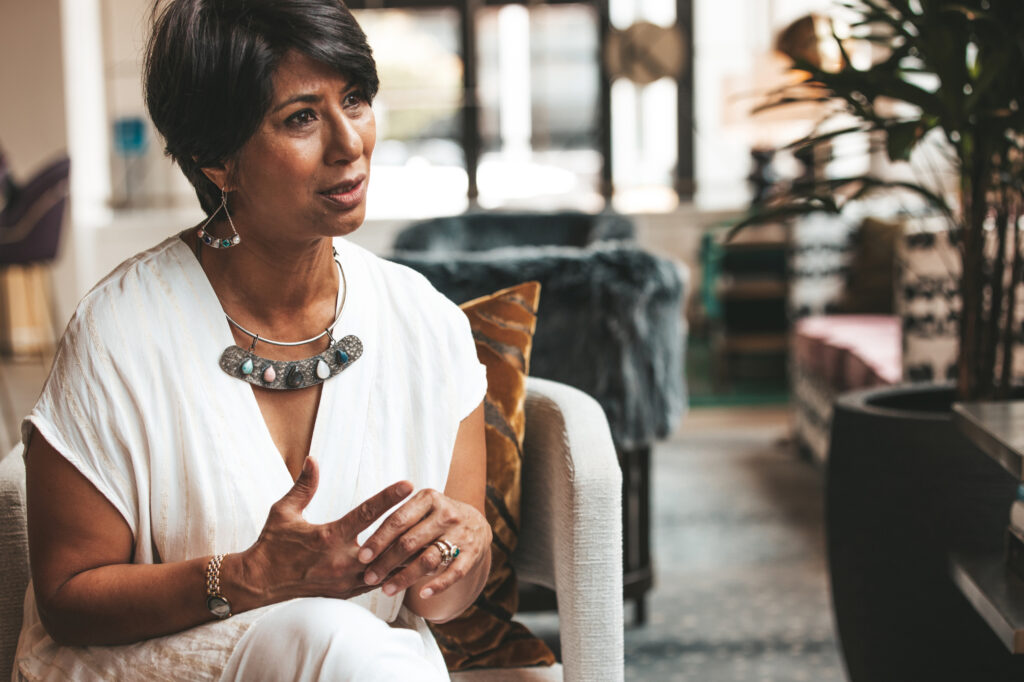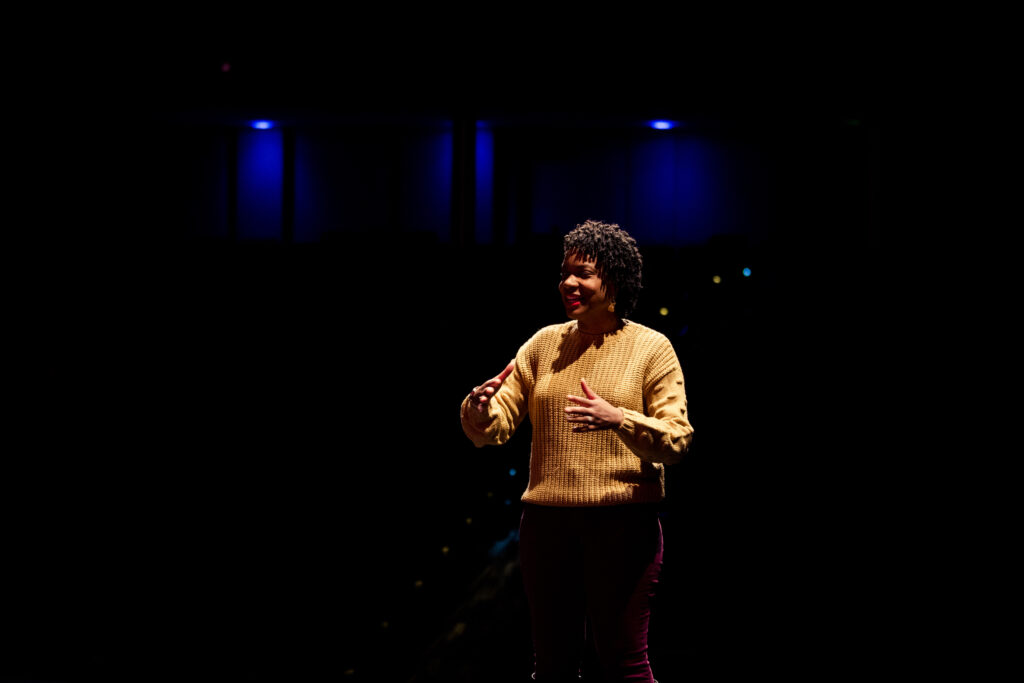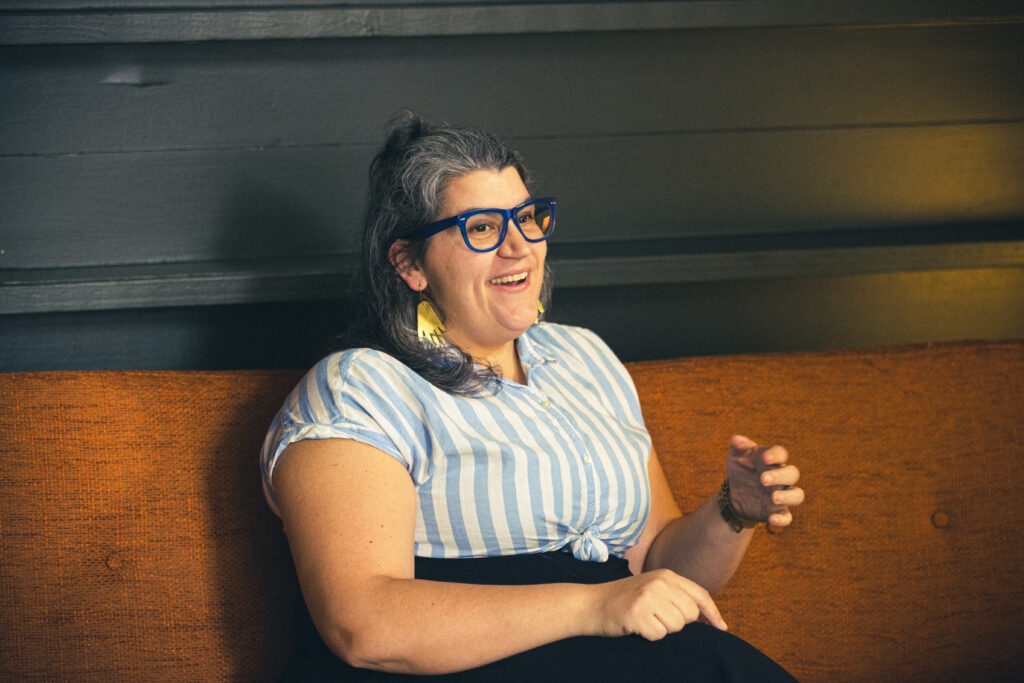Interview: Meghann Bridgeman
Photos: Ambre Amari
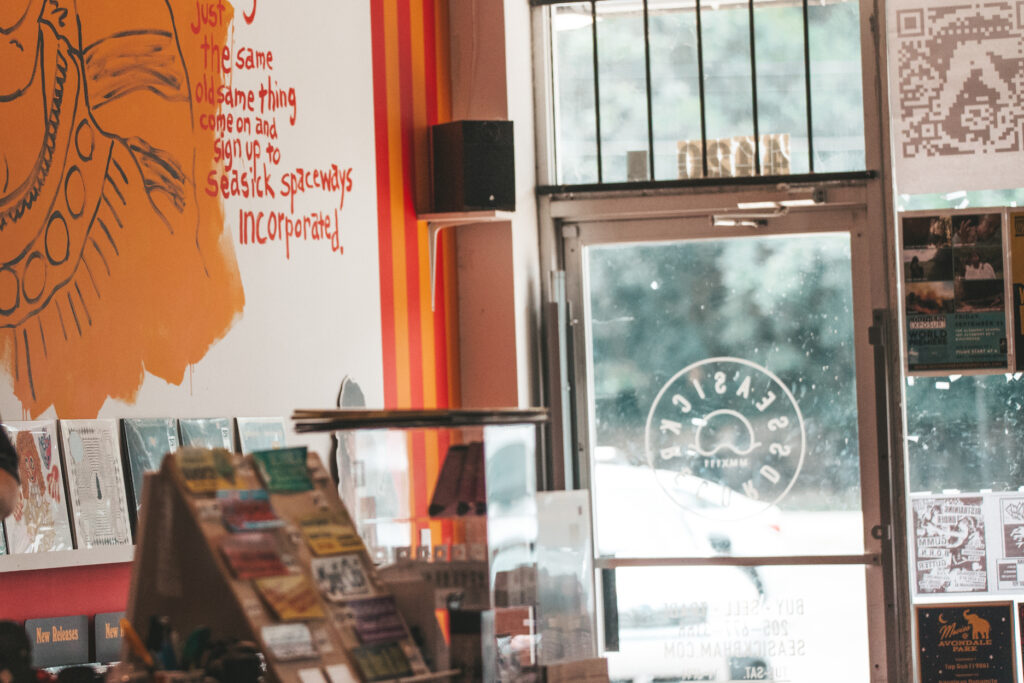 Daniel Drinkard is the owner of Seasick Records, one of Birmingham’s beloved independent record stores, offering a variety of new and used vinyl, cassettes, and CDs. Daniel shares more about his story and a new event supporting local musicians and the Birmingham community this weekend!
Daniel Drinkard is the owner of Seasick Records, one of Birmingham’s beloved independent record stores, offering a variety of new and used vinyl, cassettes, and CDs. Daniel shares more about his story and a new event supporting local musicians and the Birmingham community this weekend!
Seasick Records is known as one of the most community-centric small businesses in Birmingham. Is that something you set out to do, or something that’s become part of your brand over time?
No, I think we always tried to do that. I wanted this place to be a more inviting space than many record stores tend to be. There’s a stereotype from the movie “High Fidelity” that you’ll get judged for what you’re going to buy. Our goal is to be a space that makes people feel comfortable and welcome, purchasing whatever music they love. That’s why we make an effort to host community events that connect us to the city at large, more so than just being a retail store. During the pandemic years, we were so focused on staying open, but now we’re able to plan community initiatives and support local charities and music-related causes.
Do you guys support music-related charities exclusively? 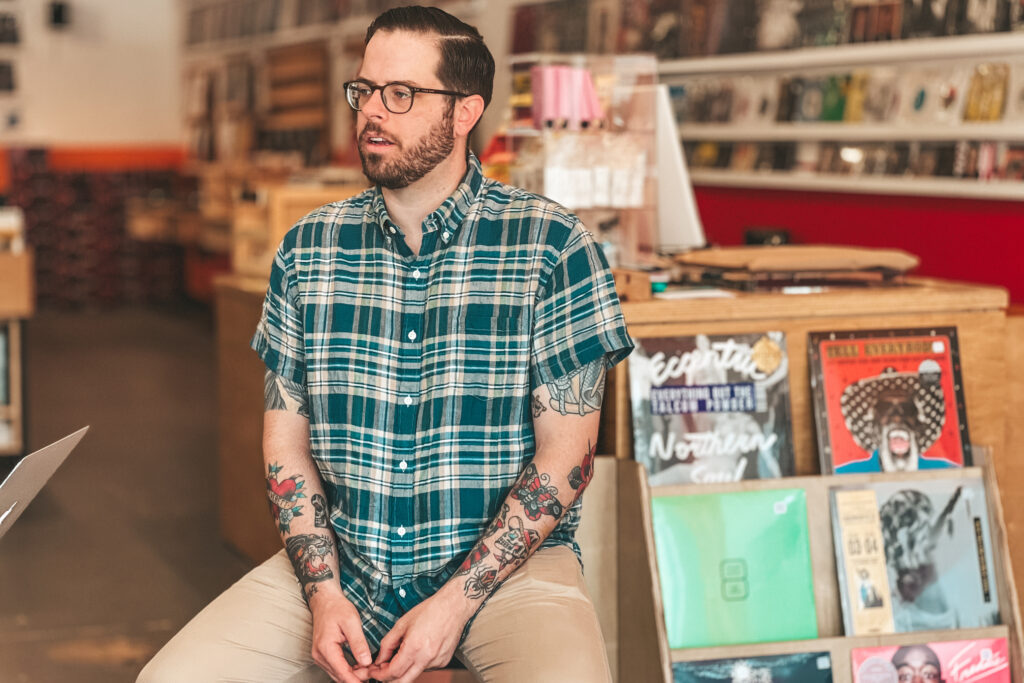
Not music, necessarily. We do focus more on music-related stuff, like the Firehouse Community Arts Center, partly because we’ve all been going to see bands play there for a long time, but if there’s a good cause, you know, we will support it. We want to support things we’re passionate about.
You opened Seasick Records in 2013, right? Happy 10th anniversary! A lot has happened in the last ten years. How are you doing ten years later? And what are you doing to celebrate your continued success?
Thank you! We are doing great ten years in. Honestly, when we opened, I didn’t have any clear expectations. I just wanted to do this thing. Since opening, we’ve moved twice to accommodate our expansion. We’ve been really busy in our current space in Avondale and, surprisingly, thrived during the pandemic because people dug into music. We have a great staff, and things are running more smoothly than they ever have.
To celebrate this fall, we’re doing a couple of things. The biggest is a free concert series in Avondale Park, the first of his coming up on Sunday, September 17th from 3:00 – 8:00 pm. We’re calling it “The Get Down.”
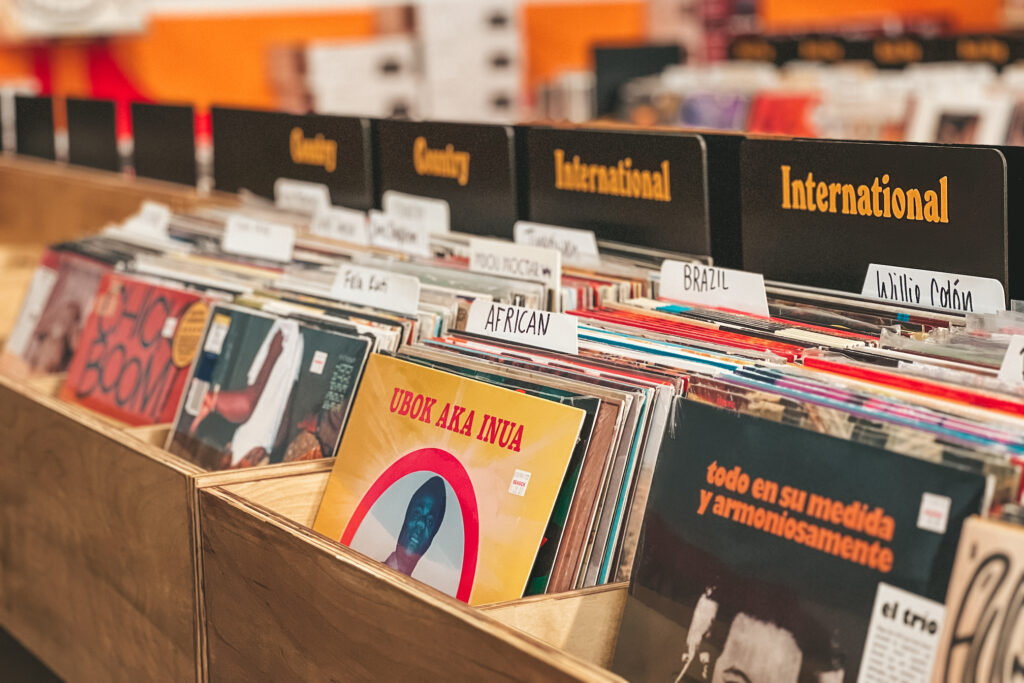 This sounds like a great event! What inspired you to take on such a big public concert series?
This sounds like a great event! What inspired you to take on such a big public concert series?
We participated in the Birmingham Folk Festival earlier this year, and I wondered why there aren’t more concerts at the park. All the infrastructure is there. So we just started working towards that goal. We’re partnering with Yellowhammer Creative, and all of the funding for the event has come from local business sponsors.
It’s completely free to anyone who wants to come. We’ll have vendors, and pop-up stuff, and beer for sale. The first headliner is William Tyler and the Impossible Truth. Will Stewart and Hannah Camille will also join.
The next free concert is scheduled for October 22nd, also on a Sunday from 3:00 – 8:00 pm. The October series will also be in partnership with Firehouse Community Arts Center as they merge their fall block party with this event and have students perform their full recital. We’ll be announcing the headliner soon.
I’m really excited. We live a block away from Avondale Park, and that’s where my wife and I actually got married, so it’s a special place to the store and to our family. We hope that we can do this annually.
Finally, at the store, we always have a big annual sale in November, on our anniversary, with some special record releases. So mark your calendars for the weekend of November 3rd, as that will officially be ten years.
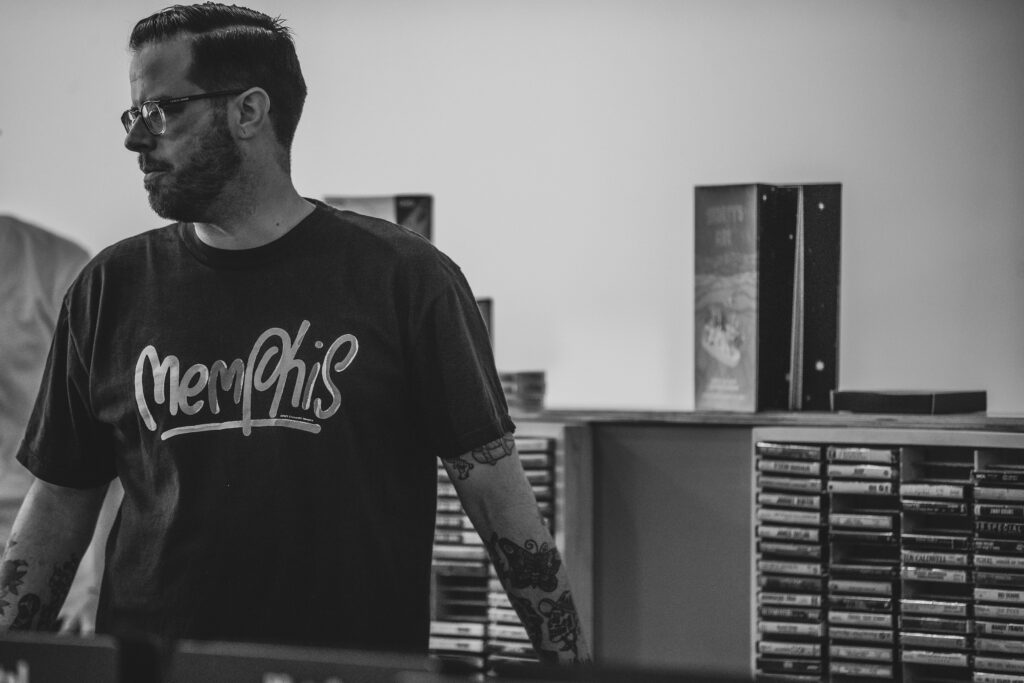 Tell us about Record Store Day – don’t y’all collaborate with stores across Alabama for a celebratory record day?
Tell us about Record Store Day – don’t y’all collaborate with stores across Alabama for a celebratory record day?
Record Store Day (RSD) is a significant event for us. It was launched about 16 years ago to help raise the profile of independent record stores when they were really struggling. It’s an annual affair and takes place at stores all across the country and the world. On RSD, limited edition records are released and are only available at independent record stores.
This April’s RSD was our biggest sales day we’ve ever had! We had a Taylor Swift release and sold all of them in one day. We had people waiting outside 24 hours in advance. St. Paul and the Broken Bones played that day, and we made a big event out of it. We also do a Record Store Day Black Friday edition, which is smaller but kicks off our holiday season. Regardless, we’ll have a release this year for RSD Black Friday, too!
Where did your passion for music come from?
It’s hard to pinpoint the exact moment. My mom was a voice teacher, and she majored in that during her school years. Growing up, I went to church, and the music was what I loved most. That’s probably when I first fell in love with music, but a transformative period for me was during my time in Costa Rica and the Dominican Republic when I was 12. Until then, I was deeply involved in sports. However, even though I’m not a shy person, the language barrier and the challenges of adapting to a new environment made me retreat into a shell. It was during that time I started playing the guitar. By the age of 14 or 15, music had become my whole life. I played in bands, helped run a couple of record labels, and immersed myself in music. Looking back, I realize that music was my safe place during a big life change, and it provided me with a great creative outlet.
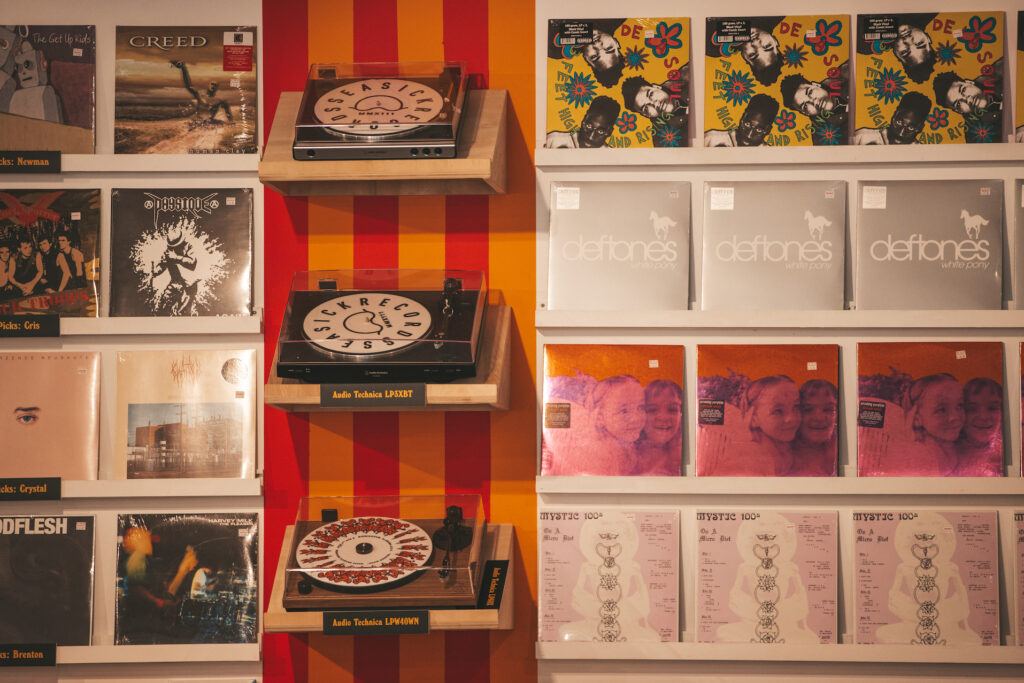 Who is buying records, and why do you think vinyl has made such a huge comeback?
Who is buying records, and why do you think vinyl has made such a huge comeback?
Everybody. No, really, it’s all over the place. Probably 25-45 is the biggest age demographic, but we see a really diverse representation. Anyone can find what they like here. From pop stars to more obscure records. One thing I always say is that if you want to buy music, you should consider a physical format of music. It’s a great way to experience music, and I can’t tell you how many times I’ve lost my device and, consequently, all of my music. Having something tangible has really drawn people to buying music. We sell CDs and tapes too.
We’re definitely in a time where people who really love music want to have it in physical format. And I think people are more aware of artist royalties now, especially how apps like Spotify don’t pay artists well. The best way to support them is to buy a physical format or go see them perform.
Are you into CD’s too? I hear they’re also making a comeback.
Personally, I don’t buy CDS, but we’ve been selling more and more. Vinyl is getting really expensive and pricing some folks out. If you want to listen to music, and can’t afford vinyl, you can move to a cheaper physical format. I think there’s also nostalgia for CDs even though vinyl is a little more precious.
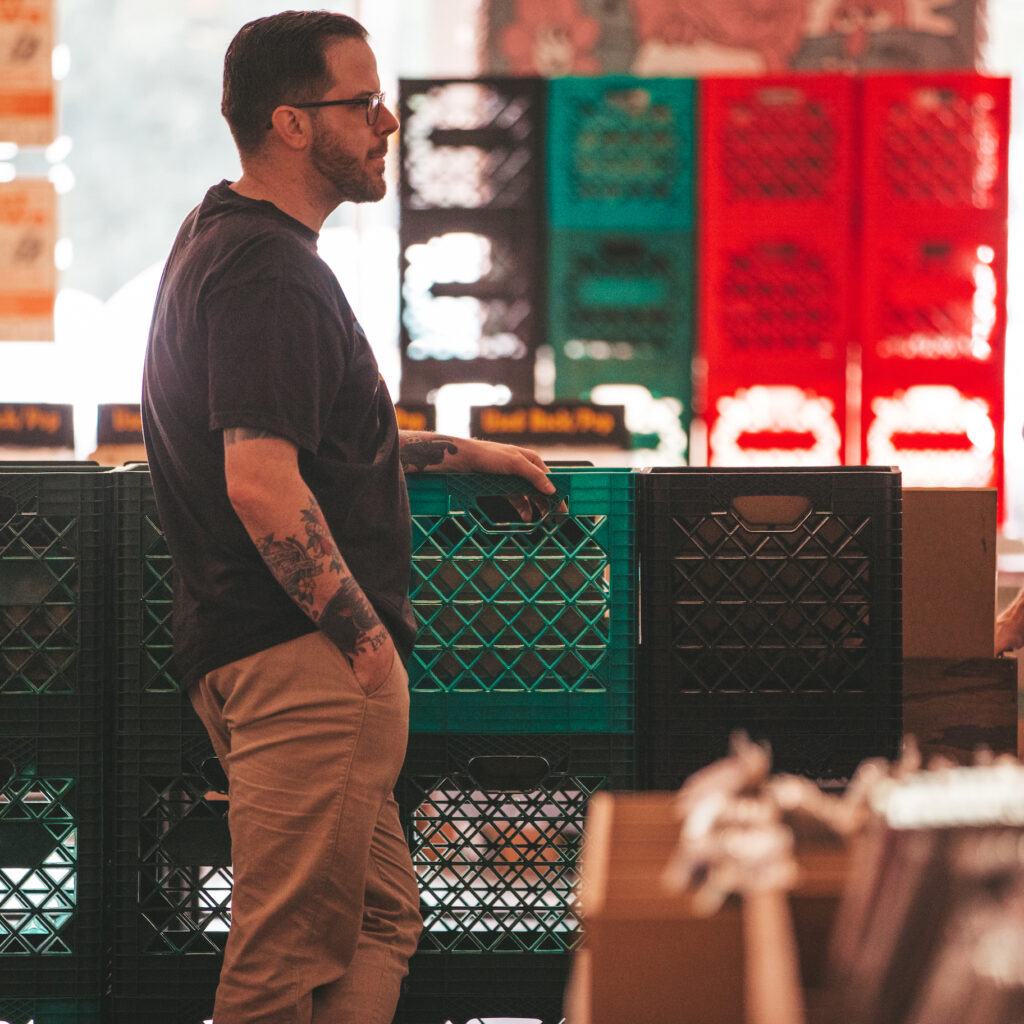 Do you see a lot of small and/or local bands producing and selling their music on vinyl?
Do you see a lot of small and/or local bands producing and selling their music on vinyl?
Not as many as I would like. The barrier is cost. It’s really expensive to produce vinyl. It used to be much easier and more affordable to press a record. Local artists have to be able to sell whatever they press because most people can’t afford to sit on them. So, it’s a risk to be stuck with a big inventory. I still have records that we pressed for small bands 15 years ago. I wish it were more accessible to do smaller runs.
Also, there aren’t any pressing plants in Alabama. Recently, we’ve been using a plant in the Czech Republic, but there are a few plants in the Southeast – Memphis Record Pressing, along with two or three in Nashville, one in Athens, Georgia, one in New Orleans, and maybe a couple in North Carolina.
What do you think Seasick Record’s next ten years will look like?
We hope to further solidify our place in the Birmingham community and continue to grow. We bought a Sprinter van so we can get on the road a bit and buy more collections. Buying used records for people is one of the most fun things about owning a record shop. It’s the thrill of the hunt. Sometimes it’s just full of crap, but some things really are treasures. We get a lot of people bringing stuff to us, but I hope we can spend more time buying up collections. I prefer to go and make a house call and look through people’s stuff. I like a more laid-back and intimate approach. The most we’ve ever bought at once was a collection of 36 thousand records. It was a store closure in Montgomery. It took us about a year to get through it all, but we also bought another fifteen thousand from a woman’s basement in Montgomery. Most of the time, it’s a hundred here or there, but sometimes we get to buy big collections, and that’s a ton of fun.
And, of course, we hope to keep selling records and sharing music with people. We want to hear about new music from our customers and invest in our community.
